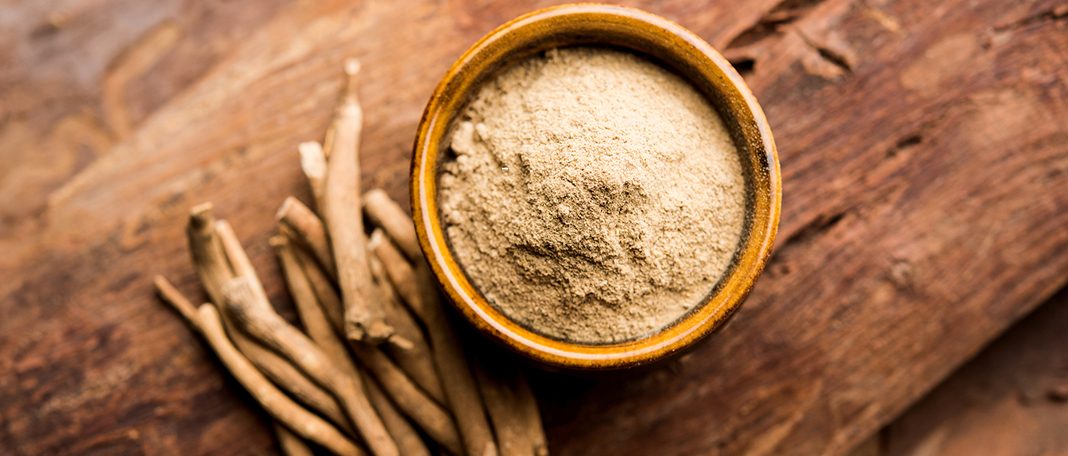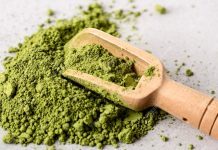What is Ashwagandha?
Ashwagandha is a shrub that grows in India, Africa, and the Middle Eastern countries. This shrub is also known as Indian ginseng or winter cherry and is considered a vital medicinal plant with many medicinal properties in traditional healing. It has a major role and impact on ayurvedic medications, the oldest treatment method. Rather than synthesizing any substances for treatment, it uses benefits from naturally occurring substances.
According to the Ayurveda medicinal system, ashwagandha is a Rasayana that aids in preserving youth both physically and psychologically.
Ashwagandha Uses and Benefits
Ashwagandha is versatile and used for several purposes. Here are some of the health benefits of Ashwagandha.
- Fights fatigue
Ashwagandha is regarded as an energizing herb. The plant can supposedly sustain stamina and boost vitality. The beverage made from this shrub is an alternative to drinks for caffeine, and the revitalized sensation without the jitters is an added benefit. Ashwagandha can help to fight fatigue and keep the individual energized.
- Deals with stress and anxiety
Ashwagandha is an adaptogen that prepares the body to deal with physical and mental stress. It brings the nervous system to a calm state. Hence, ashwagandha is recommended for those with stress and anxiety to deal with the condition.
- Lowers blood pressure
Ashwagandha supposedly works on the nervous system and calms the brain. It has an impact on the level of blood pressure and lowers it.
- Reduces swelling
Ashwagandha helps to reduce inflammation. The swelling that is a result of a potential inflammation reduces with the consumption of this shrub.
- For insomnia
Insomnia can be a result of underlying conditions like stress, anxiety, or even physical disturbances that can lead to disrupted sleep. The shrub calms the brain and relieves inflammation. Hence, this leads to better sleep.
- Lowers cholesterol
Studies show that ashwagandha can lower low-density lipoprotein cholesterol and triglyceride levels which can cause problems with other bodily processes like heart disease.
- For Arthritis
Ashwagandha can treat arthritis-related joint pain and swelling, according to experts. The shrub helps in treating the inflammation due to arthritis. This shrub has the ability to reduce pain and can alter the signals that transmit the feeling of pain from the brain to the neurological system.
Risks and Side Effects of Ashwagandha
Ashwagandha, a popular herb in traditional Ayurvedic medicine, is renowned for its potential health benefits. However, like any supplement or herbal remedy, it’s essential to be aware of potential risks and side effects associated with its use. Here, we’ll explore what you should know about the risks and side effects of Ashwagandha.
1. Allergic Reactions
While rare, some individuals may experience allergic reactions to this herb. Symptoms can range from skin rashes and itching to more severe reactions. If you suspect an allergy, discontinue use and seek medical attention.
2. Gastrointestinal Distress
Digestive issues such as diarrhea, upset stomach, or nausea have been reported in some users. Starting with a lower dosage and gradually increasing it may help mitigate these effects.
3. Blood Pressure Fluctuations
Ashwagandha has been known to lower blood pressure. Individuals with low blood pressure should be cautious when using it, as it may exacerbate this condition.
4. Sedation and Drowsiness
Some individuals may experience drowsiness or sedation when using Ashwagandha, especially at higher doses. This can affect concentration and alertness, so it’s essential to avoid activities requiring focus, such as driving, when experiencing these effects.
5. Interaction with Medications
Ashwagandha may interact with certain medications, including sedatives, medications for high blood pressure, and drugs that suppress the immune system. If you are taking any medications, consult with a healthcare provider before using this herb.
6. Thyroid Function
Ashwagandha may influence thyroid function. Individuals with thyroid disorders, especially those taking thyroid medication, should consult with a healthcare provider before using it.
7. Pregnancy and Breastfeeding
The safety of Ashwagandha during pregnancy and breastfeeding has not been extensively studied. It’s best for pregnant and breastfeeding women to avoid the same or consult a healthcare provider for guidance.
8. Autoimmune Conditions
Ashwagandha may stimulate the immune system. Individuals with autoimmune conditions should use it with caution, as it could potentially exacerbate their condition.
9. Duration of Use
Long-term use of Ashwagandha at high doses may not be advisable, as it can lead to potential side effects. It’s essential to follow recommended dosages and consult a healthcare provider for extended use.
While Ashwagandha offers numerous potential health benefits, it’s essential to be aware of the risks and side effects associated with its use.
How to Take Ashwagandha Supplements
Ashwagandha, a powerful adaptogen with a range of potential health benefits, is commonly available in supplement form. If you’re considering adding it to your daily routine, it’s crucial to understand how to take it effectively.
1. Choose the Right Form
Ashwagandha supplements are available in various forms, including capsules, powders, and tinctures. Select a form that suits your preferences and lifestyle. Capsules are convenient for precise dosing, while powders can be mixed into beverages or food.
2. Consult a Healthcare Provider
Before starting any new supplement, it’s advisable to consult with a healthcare provider, especially if you have underlying health conditions or are taking medications. They can provide personalized guidance on the appropriate dosage and usage.
3. Determine the Purpose
4. Dosage Recommendations
The appropriate dosage of Ashwagandha can vary based on factors like age, weight, and individual health needs. As a general guideline:
- For general well-being and stress management, a typical dose ranges from 300 mg to 500 mg per day.
- For sleep support, a similar dosage may be effective.
- For specific health concerns, it’s best to consult with a healthcare provider for personalized recommendations.
5. Timing Matters
Ashwagandha supplements can be taken with or without food, depending on your preference. Some individuals find it more convenient to take them with a meal to minimize the risk of stomach discomfort.
6. Consistency is Key
To experience the potential benefits of Ashwagandha, it’s essential to take it consistently. Establish a daily routine that includes your supplement to ensure you receive its full advantages.
7. Monitor Your Body’s Response
Pay attention to how your body responds to this. While most people tolerate it well, some may experience mild side effects like gastrointestinal discomfort. If you notice any adverse reactions, consult with your healthcare provider.
8. Adjust Dosage as Needed
Based on your health goals and how your body responds, you may need to adjust your dosage over time. A healthcare provider can help you make informed decisions.
9. Be Patient
It may take some time to experience the full benefits of Ashwagandha. Allow several weeks for potential improvements in stress levels, sleep quality, or other health concerns.
10. Maintain a Balanced Lifestyle
While Ashwagandha can be a valuable addition to your wellness routine, it should complement a balanced lifestyle that includes a nutritious diet, regular exercise, and stress management practices.
How to consume ashwagandha?
The quantity of ashwagandha varies according to the condition. This shrub is processed and made into powder and pills. According to experts, about 250-600 micrograms is the ideal quantity to relieve stress.
Ashwagandha powder side effects
When consumed on a moderate scale, it might not have side effects. The side effects in the long run for some individuals, lead to diarrhea, vomiting, nausea, and digestive problems. Avoiding pills or powders is safer for pregnant women and nursing mothers.
As mentioned, Ashwagandha powder benefits and the pills can work effectively in managing several conditions. The results may vary from person to person. Self-analyzing and self-medication may lead to worsening the condition. Consult your healthcare provider before consuming any medications
Conclusion
Ashwagandha supplements can offer various health benefits when used correctly. By following these guidelines and consulting with a healthcare provider, you can make informed decisions about incorporating it into your daily routine


















